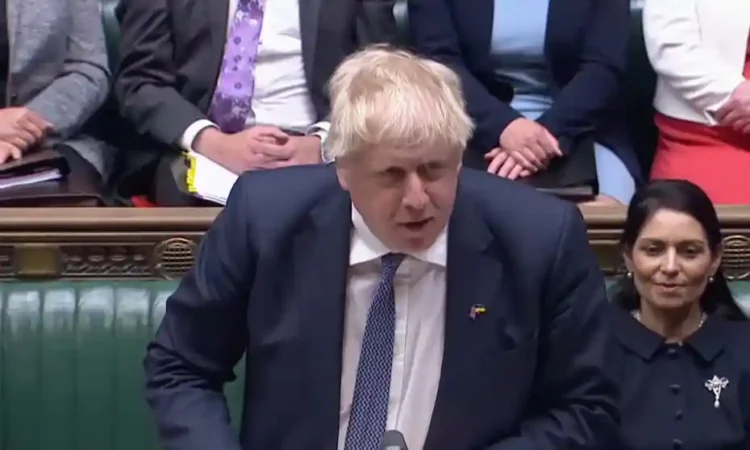By Ben Kerrigan-
Boris Johnson has promised to “grow and strengthen the British economy, and help ease the cost of living for families” through new measures in the Queen’s Speech.
The prime minister’s address, outlining the Uk’s government’s legislative agenda for the year ahead, was centred on the economy as the PM sought to address issues surrounding the cost of living in Britain.
The government highlighted the £22 billion package of help with energy bills, tax cuts and other measures already announced and hinted at further support in future.The speech was read by the Prince of Wales as the Queen missed the state opening of Parliament for the first time in almost 60 years as she continues to experience “episodic mobility problems”.
The Levelling Up and Regeneration Bill will attempted to tackle the problem of blighted high streets. Modernisation of the Mental Health Act, the Seafarers bill (to deter future P&O-style sackings), and updating the Official Secrets Act, all accompanied the bill.
The new British bill of rights, promised by the justice secretary, Dominic Raab, is aimed at curtailing the role of the European court of human rights. The speech said the legislation would “ensure there is a proper balance between the rights of individuals, our vital national security and effective government, strengthening freedom of speech”.
The president of the Law Society, I Stephanie Boyce, attacked the planned legislation, warning it would undermine human rights. “If the new bill of rights becomes law, it would make it harder for all of us to protect or enforce our rights.
“The proposed changes make the state less accountable. This undermines a crucial element of the rule of law, preventing people from challenging illegitimate uses of power.”
Boris Johnson’s government has always sort to curb the Human Rights Act since Brexit, particularly to give British judges more power than that of European judges.
The speech Prince Charles delivered began: “My government’s priority is to grow and strengthen the economy and help ease the cost of living for families.” But it included few new measures likely to boost the economy in the short term. Instead, the government emphasised measures it had already taken, including the temporary energy bill rebate and the cut to the universal credit taper rate.
New bills he said will include levelling up legislation giving councils the right to sell off empty properties on local high streets and forcing the government to report regularly on whether it is meeting its levelling up “missions”.
An energy security bill promises to set up “state-of-the-art business models” in hydrogen, and carbon capture and storage; while an economic crime bill will beef up Companies House, which monitors companies. And the government will legislate to permit gene-editing for crops.
The Treasury will introduce a new financial services and markets bill, changing City regulation to “ensure a greater focus on growth and international competitiveness”.
In a strong bid to reinstate anti-protest measures thrown out by the House of Lords in January, the government will also announce new offences to stop protesters from “locking on” to infrastructure, extend stop and search powers, and make it illegal to obstruct transport projects.
The public order bill is directed at eradicating practises used by protest groups such as Extinction Rebellion, Insulate Britain and Just Stop Oil.
Oher new laws will include a Brexit bill to facilitate the adaptation of carried-over EU legislation without consulting parliament – and promised legislation to tackle the widely criticised actions of P&O Ferries to undermine minimum-wage law.
Labour opposition leader criticised the bill, accusing Boris Johnson was bereft of ideas and purpose.




